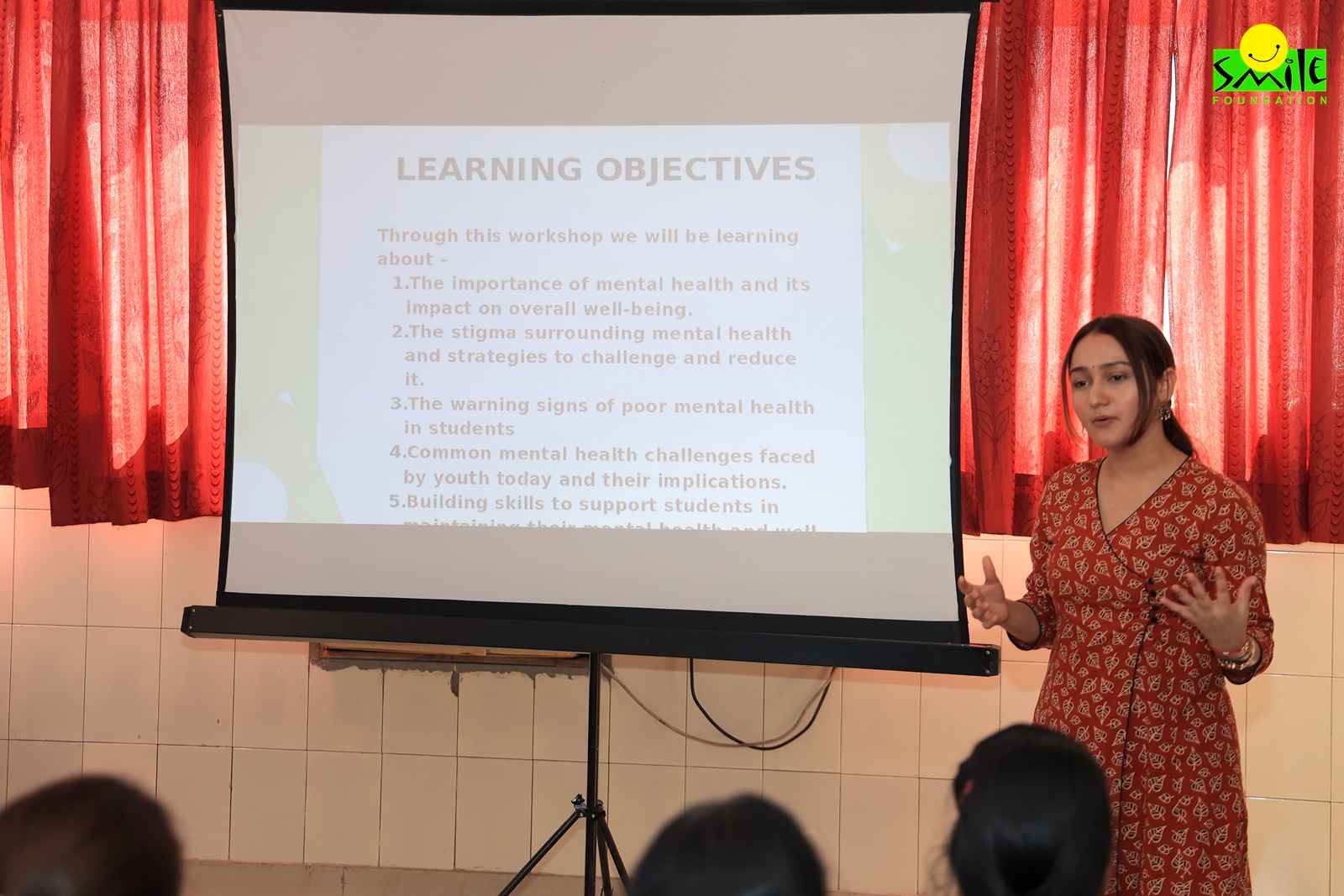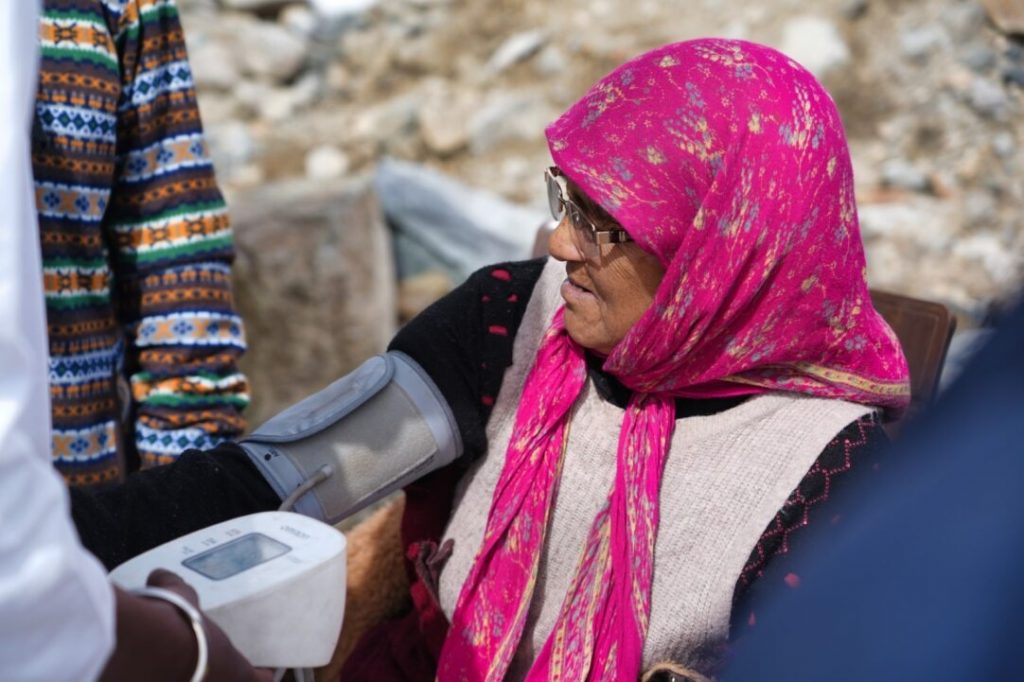There was a time when people with mental health issues like bipolar disorder and schizophrenia were taken to exorcists. For they were believed to be haunted by evil spirits. Until recently, it had been extremely difficult for the majority of the Indian population to understand that a human brain structure can malfunction. But the COVID-19 pandemic, which has reversed global development by a few decades, has attempted to help people in understanding the importance of mental health. To an extent, according to experts, it has even succeeded. Before we go on to discuss the journey of mental health post-pandemic in the country, let’s understand what mental health is and its importance.
What is Mental Health?
Mental health is all about how people feel, think and behave. The World Health Organization defines mental health as “a state of mental well-being that enables people to cope with the stresses of life, realize their abilities, learn well and work well, and contribute to their community.” It is determined by a complex yet significant interplay of individual, social and structural stresses and vulnerabilities.
Mental health conditions are a broad range of disorders that affect the mood, thinking and behaviour of a person. It includes mental disorders, psychosocial disabilities and other mental states that are significantly associated with significant distress, functional impairment or self-harming risks.
Though many conceive it as a form of disorder, it is more than that. According to experts, it exists on a complex continuum. It is experienced differently by each person. Each will have a varying degree of difficulties and distress. Its impact on each person will have different social and clinical outcomes. People with mental health issues often experience lower levels of mental well-being.
Terming it as a basic human right, WHO says it supports individuals’ abilities to build relationships, make the right decisions and shape the world. It is also vital for the development of individuals, societies and countries at large. Some of the common mental health conditions are schizophrenia, anxiety disorders, bipolar disorder, depression, personality disorder, eating disorder, post-traumatic stress disorder and neurodevelopmental disorders.
Why is Mental Health Important?
Mental health is crucial for the overall well-being of a person. For it has a serious impact on the emotional, social and psychological well-being of a person and influences how one feels, thinks, acts and interacts with others in their daily lives. A person with good mental health will be able to face challenges with resilience, make positive and right decisions, forge meaningful and strong relationships, manage stress effectively and contribute significantly to the well-being of others. It in turn holds a key to fostering a healthier society since it lays the foundation for collective well-being.
Also, mental health is closely associated with the physical health of individuals. People with poor mental health can contribute to or exacerbate physical health problems. For instance, mental health conditions like anxiety and depression can affect heart health and the immune system and increase the chance of chronic diseases. These conditions will often interfere with the sleep patterns of a person and lead to sleep deprivation.
Treating mental health conditions and ensuring a positive condition is vital for the overall well-being of individuals. For it plays a crucial role in stabilizing emotions, thoughts and constructive behaviours. It in turn can contribute effectively to increasing productivity, improving relationships and enhancing self-image. Maintaining mental health can improve mood, reduce anxiety, think clearly and create an enhanced sense of inner peace.
Journey of Mental Health in India
Mental health conditions in India have been grim for a long time. It has always been stigmatised and overlooked. The stigma surrounding mental health was deeply entrenched in society. This in turn prevented people from seeking professional help and made them struggle silently. The struggles are mainly because of the social, cultural and systematic barriers. It is often perceived as a taboo subject.
Mental health conditions have always been seen through the lens of superstition in India. People saw it as weakness or an evil omen. There were times when people with mental health conditions were taken to exorcists rather than a doctor. Because it was often associated with possession by evil spirits or punishments for wrongdoings in the past. People often feared being labeled as unstable would lead to discrimination and isolation. This in turn prevented me from seeking professional help. As a result, they struggled in private.
Inadequate mental health literacy and lack of awareness were also the major reasons for the grim situation. People did not recognise common mental health conditions like anxiety and depression required professional intervention. Also, lack of mental health education and open conversations left many individuals without the tools to identify and address mental health challenges, both for themselves and others.
According to a survey conducted in 2017, one in seven Indian citizens was suffering from one of the mental disorders. The proportion of mental disorders to the total disease burden in the country was estimated to have doubled from 1990 to 2017. India accounted for 26.6% of the global suicide deaths in 2016.
But the COVID-19 pandemic has become a game changer for many, especially those with mental health conditions. It is true that the pandemic and the subsequent lockdown to control the infection have severed the health condition for many. But it also opened the gates to increase awareness about the importance of mental health. People had started talking about the conditions without much hesitation. The open talk and awareness had encouraged many to come forward to seek professional help.
In addition to the increased awareness, both the state and union governments, along with development organisations and hospitals, had set up tele-counselling centres across the country to assist people with mental health conditions. The pandemic has also helped the healthcare system to adapt quickly to the digital transformations. Since it was not possible to give in-person consultations due to lockdown and social distancing norms, telemedicine became a critical tool for mental health treatment. As a result, many therapists and psychiatrists began offering online consultations. Also, the popularity of online mental health applications offering multiple counseling services, teaching mindfulness exercises and providing emotional support resources has multiplied.
The research conducted in 2023 has revealed that over 82% of youngsters believe their parents would extend their support if they needed professional help to deal with mental health conditions. This shows the increased awareness among the people.
The journey of mental health in India after the COVID-19 pandemic has been awakening. While the pandemic highlighted the critical need for mental health care and increased dialogue, challenges remain in terms of accessibility, stigma and service availability. The path forward lies in continued policy support, expanding mental health infrastructure, integrating mental health into the broader healthcare system, and further reducing stigma to make mental health care more inclusive and effective for all citizens.










